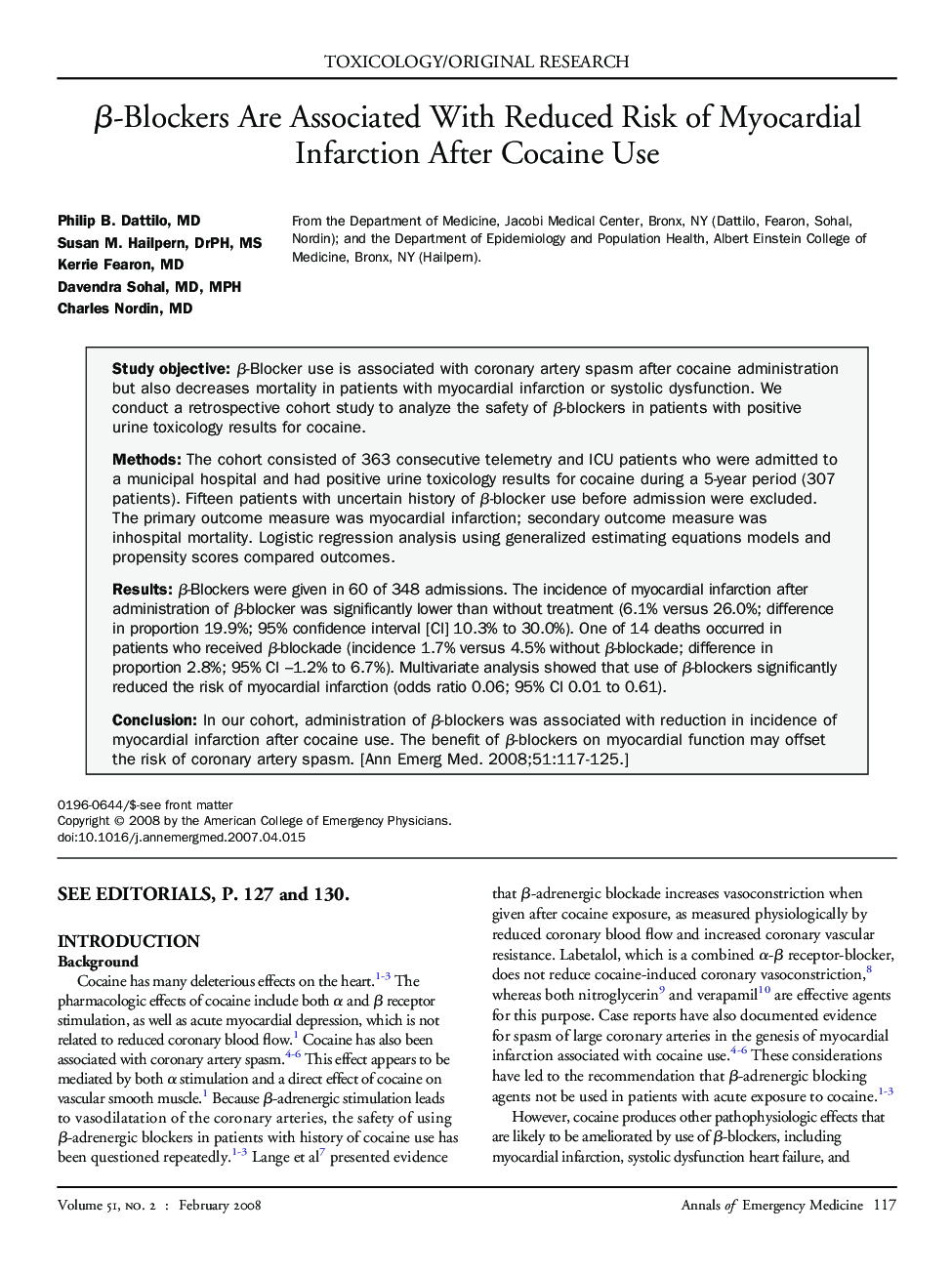| Article ID | Journal | Published Year | Pages | File Type |
|---|---|---|---|---|
| 3233207 | Annals of Emergency Medicine | 2008 | 9 Pages |
Study objectiveβ-Blocker use is associated with coronary artery spasm after cocaine administration but also decreases mortality in patients with myocardial infarction or systolic dysfunction. We conduct a retrospective cohort study to analyze the safety of β-blockers in patients with positive urine toxicology results for cocaine.MethodsThe cohort consisted of 363 consecutive telemetry and ICU patients who were admitted to a municipal hospital and had positive urine toxicology results for cocaine during a 5-year period (307 patients). Fifteen patients with uncertain history of β-blocker use before admission were excluded. The primary outcome measure was myocardial infarction; secondary outcome measure was inhospital mortality. Logistic regression analysis using generalized estimating equations models and propensity scores compared outcomes.Resultsβ-Blockers were given in 60 of 348 admissions. The incidence of myocardial infarction after administration of β-blocker was significantly lower than without treatment (6.1% versus 26.0%; difference in proportion 19.9%; 95% confidence interval [CI] 10.3% to 30.0%). One of 14 deaths occurred in patients who received β-blockade (incidence 1.7% versus 4.5% without β-blockade; difference in proportion 2.8%; 95% CI –1.2% to 6.7%). Multivariate analysis showed that use of β-blockers significantly reduced the risk of myocardial infarction (odds ratio 0.06; 95% CI 0.01 to 0.61).ConclusionIn our cohort, administration of β-blockers was associated with reduction in incidence of myocardial infarction after cocaine use. The benefit of β-blockers on myocardial function may offset the risk of coronary artery spasm.
